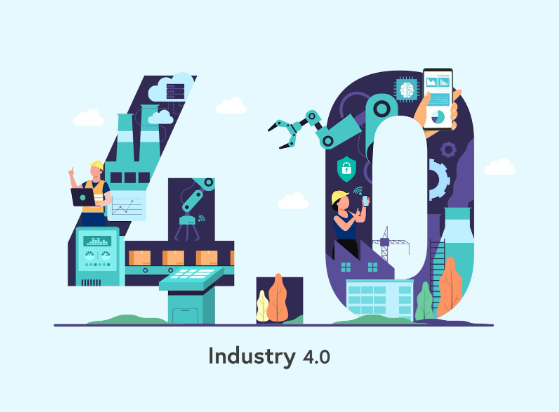Consulting and content advice on Google Cloud Platform, achieving greater efficiency.
Tag: industry
Industry 4.0: a close challenge for SMEs
Spanish SMEs, especially in the industrial sector, have low penetration of digitization and need to invest in technology and change their culture to maintain their competitiveness. The Plan to Promote the Digitization of SMEs 2021-2025 and the European Union funds for digital transformation seek to encourage the adoption of new technologies. SMEs often have a distant perception of Industry 4.0 and make mistakes by thinking that it only involves having a website and storing data in the cloud. To unlock the true potential of Industry 4.0, SMEs need a comprehensive mix of technologies and a holistic view, supported by technology partners and data experts.
Industry 4.0: long live the reign of data
The Industrial Revolutions have transformed society and the economy throughout history. The Fourth Industrial Revolution is characterized by the use of data and artificial intelligence, with a high level of information exchange. Companies must migrate towards a data-centric relationship model, organizing and understanding information to meet customer needs and optimize information flows. Before digitizing, you need to organize your data.
Natural pool
Development of a hybrid solution to be able to detect swimming pools in different regions
What industrial revolution is your company in today?
The Fourth Industrial Revolution poses challenges for companies. Although digitalization forced by the pandemic has paved the way, there is still a long way to go. The adoption of Data Intelligence and Big Data tools is low in Spain, and many companies lack a consistent data strategy. Successful transformation requires a comprehensive business strategy change and the ability to anticipate disruptions.
Big data applied to health: a revolution for the entire health system
Applying Big Data strategies in the healthcare sector has multiple benefits, including making accurate decisions, improving patient experience, and reducing costs. Data collection and analysis can help medical professionals and healthcare administrators make informed decisions about treatments and services. Integrating patient data into a single record enables integrated healthcare, and solutions such as electronic data interchange facilitate interoperability and the secure transfer of clinical information. Additionally, the use of technologies such as chatbots, augmented reality and robotics in healthcare provides additional benefits, improving patient intake, surgical practice and home care. In short, Big Data has the potential to transform healthcare, improving quality and reducing costs.
AI and collaboration: partners for the future for Industry 4.0
Industry 4.0 is based on the management of large volumes of information to optimize production in real time. The challenge lies in the efficient capture, organization and management of data, as well as collaboration with all actors in the supply chain. Collaboration and the use of technologies such as Artificial Intelligence are essential to promote digitalization and optimize decision making in Industry 4.0.
The wine industry toasts the advances of digital transformation
The wine industry has growth potential in the adoption of digital technologies. IoT sensors, artificial intelligence and blockchain are used to improve production, traceability and efficiency. Digitalization helps predict the weather, optimize harvesting, monitor soil quality, and streamline processes. The challenge is to include SMEs in this process to maintain the competitiveness and quality of the wine.
Big Data and Insurance: towards an industry of risk prediction and prevention
The entire concept of insurance business is based on risk assessment. Whether it is property and casualty insurance or any other type of life, home or auto policy, the main task is to assume the possible risks relevant to each client and predict the possibility of the policyholder making a claim.
Digital transformation as the engine of the vineyard of the future
The wine industry is in an early stage of digital transformation, but with a high potential for technology adoption. Digitization throughout the wine value chain can improve efficiency, traceability and marketing. Artificial intelligence, the Internet of Things and blockchain technology are key tools in this process.











